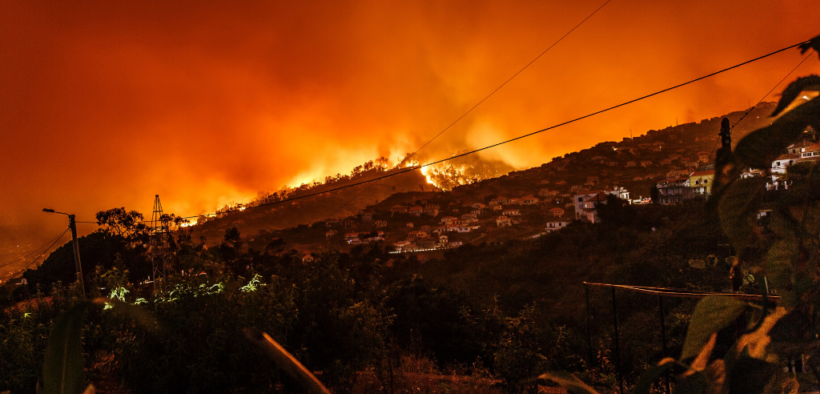Donors support medium to long-term disaster recovery
Share

The Foundation for Rural & Regional Renewal (FRRR) says that once again, the generosity of the general public, businesses and philanthropists will ensure that fire-affected communities will be able to access the support they need when they need it, especially in the medium to long-term.
In September last year in anticipation of a tough disaster season, FRRR launched its Disaster Resilience and Recovery Fund to ensure funds are available to support the needs that typically emerge 12-18 months after a disaster event. This could include support for fatigued volunteer leaders, repairing vital community infrastructure, building the capacity of local not-for-profit organisations, or ensuring psychological support is available. Thanks to FRRR’s unique status, grants from the Fund can also help communities rebuild their local economy.
The Fund launched with a gift of $500,000 from founding donor Aussie Farmers Foundation. Among the first commitments to the Fund since is $1 million raised with the help of Wilson Asset Management’s shareholders and supporters and hundreds of individual donors. The investment manager offered to match donations up to $500,000, and the target was reached late last week.
FRRR’s CEO Natalie Egleton says that it’s been a fantastic kickstart.
“We’ve long seen the need for this fund, and I extend my thanks to Wilson Asset Management’s Chairman and Chief Investment Officer, Geoff Wilson AO and the team, along with their shareholders and supporters, for recognising the importance of having funds available for medium to long-term recovery, and for their generosity,” says FRRR CEO, Natalie Egleton.
“The effect of the fires will not be the same in any two communities, so it’s important that grants can respond appropriately. These donors have recognised the importance of ensuring that funds are available to help communities rebuild when the time is right.”
Several other organisations have also made donations to the Fund, including organisations and individuals The Caledonia Foundation ($200,000) Mark and Louise Nelson ($100,000), Geraldine and Mike Roche ($50,000), Go-To skin care ($50,000, plus additional matching of customer donations), ALS Global ($40,000), and hospitality and catering industry recruitment company Chefs on the Run is donating $10,000.
Other donors have chosen to partner with FRRR in different ways, including The Paul Ramsay Foundation, who announced a $1 million donation, and the Pratt Foundation, which will work with FRRR to assist the Tumut region, home to the Visy Pulp and Paper Mill.
Through its CARE Foundation, diversified property group Stockland is directing funds to FRRR’s Strengthening Rural Communities grants program which, through a special stream, will support communities that identify more immediate needs out of the fires. Other contributions to Strengthening Rural Communities come from Westpac Group ($250,000), Vicinity Centres ($125,000), and Portland House Foundation ($100,000).
The Origin Foundation will contribute $125,000 to a winter round of FRRR’s Back to School program, and an additional $50,000 comes from the Portland House Foundation. Back to School provides vouchers to support impacted children and families, so they have the clothing and stationery supplies needed for their schooling.
Some donors, such as RM Williams and Elders, have committed to long-term partnerships with FRRR to support the ongoing recovery and resilience of impacted communities and environments.
“We are buoyed by Australians continued generosity towards this unprecedented loss,” says Egleton.
“Private and corporate philanthropy have a very important role to play in developing and executing innovations to help prevent or mitigate future disasters. Our single encouragement to you is to consider how your donations and support can have an impact beyond the headlines and can give communities control and determination over their recovery.”
Egleton continues, “from our experience over the last decade working with local communities recovering from disasters, we know that it’s critical that when the time is right, local leaders can access funds for whatever is most important to their community”.
“There has also been significant research into best-practice for disaster recovery and resilience, and these learnings should be drawn upon.”
Pearl Dy is a community manager and journalist. She is passionate about business and development particularly involving not-for-profits, charity and social entrepreneurship.

























